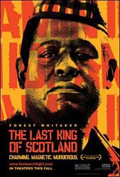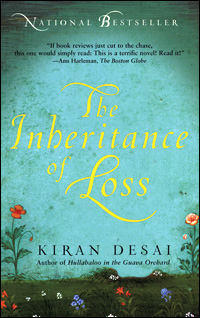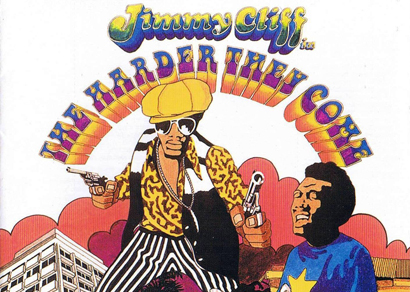After discovering the collaborative blog Femmeuary and ranting about its brilliance and relevance (see previous post), imagine my absolute delight when I received an email from Alice Ash, founder of Femmeuary, thanking me for my review and asking whether they could publish it on their site! And now imagine even more delight because in the late hours of yesterday evening, my double review of Katie Nevison’s ‘Venus Fly Trap’ and the collaborative blog Femmeuary was published on the Femmeuary website (under the title ‘Femmeuary Reviewed’)!
Check out the link and see what it looks like, here.
Now all I want is to find out if there’s a way to make Femmeuary not simply a February-thing but an all-year-round-thing!
 John Crow’s Devil, Marlon James’ explosive entrance onto the literary stage, is not your conventional Caribbean novel. For starters, it has an unusual opening – it begins at ‘The End’. Readers are propelled immediately into the nub of the story, and thus from the outset are robbed of the element of surprise. Yet here is a book so tight with tension and suffused with mystery, it was hailed as one of the best books of the year by the New York Times and was shortlisted for the Commonwealth Writer’s Prize in 2006. ‘It’s the road to ruin that fascinates me, the journey if you will’ James says in explanation of his structural decision. And what an expedition this novel takes you on!
John Crow’s Devil, Marlon James’ explosive entrance onto the literary stage, is not your conventional Caribbean novel. For starters, it has an unusual opening – it begins at ‘The End’. Readers are propelled immediately into the nub of the story, and thus from the outset are robbed of the element of surprise. Yet here is a book so tight with tension and suffused with mystery, it was hailed as one of the best books of the year by the New York Times and was shortlisted for the Commonwealth Writer’s Prize in 2006. ‘It’s the road to ruin that fascinates me, the journey if you will’ James says in explanation of his structural decision. And what an expedition this novel takes you on! ‘Charming. Magnetic. Murderous.’ This is the tag line of the recent release by Fox Searchlight Pictures; three words that succinctly describe the subject of this feature presentation: the late General Idi Amin. Based on the eponymous novel by Giles Fodden and firmly grounded in real facts and events, The Last King of Scotland – despite its disingenuous title – is a superbly crafted, harrowing portrayal of one of Africa’s most tyrannical dictators.
‘Charming. Magnetic. Murderous.’ This is the tag line of the recent release by Fox Searchlight Pictures; three words that succinctly describe the subject of this feature presentation: the late General Idi Amin. Based on the eponymous novel by Giles Fodden and firmly grounded in real facts and events, The Last King of Scotland – despite its disingenuous title – is a superbly crafted, harrowing portrayal of one of Africa’s most tyrannical dictators. Following the global success of Hullaballoo in the Guava Orchard, Kiran Desai’s second novel is a spectacular oeuvre that has been heralded by critics and readers alike as one of the year’s finest books. Suketu Mehta said of the work of fiction: ‘(It is) a revelation of the possibilities of the novel’, and indeed, for The Inheritance of Loss there seems to be no boundaries. The 395 page volume spans over four generations and two continents. However the quality of this mammoth novel lies not only in its breadth but also in its depth. The narrative not only explores universal themes such as love, hatred, longing and abandonment but also adroitly tackles the most pressing of contemporary issues: economic inequality, immigration, globalisation, post-colonialism, nationalism and terrorism.
Following the global success of Hullaballoo in the Guava Orchard, Kiran Desai’s second novel is a spectacular oeuvre that has been heralded by critics and readers alike as one of the year’s finest books. Suketu Mehta said of the work of fiction: ‘(It is) a revelation of the possibilities of the novel’, and indeed, for The Inheritance of Loss there seems to be no boundaries. The 395 page volume spans over four generations and two continents. However the quality of this mammoth novel lies not only in its breadth but also in its depth. The narrative not only explores universal themes such as love, hatred, longing and abandonment but also adroitly tackles the most pressing of contemporary issues: economic inequality, immigration, globalisation, post-colonialism, nationalism and terrorism.
